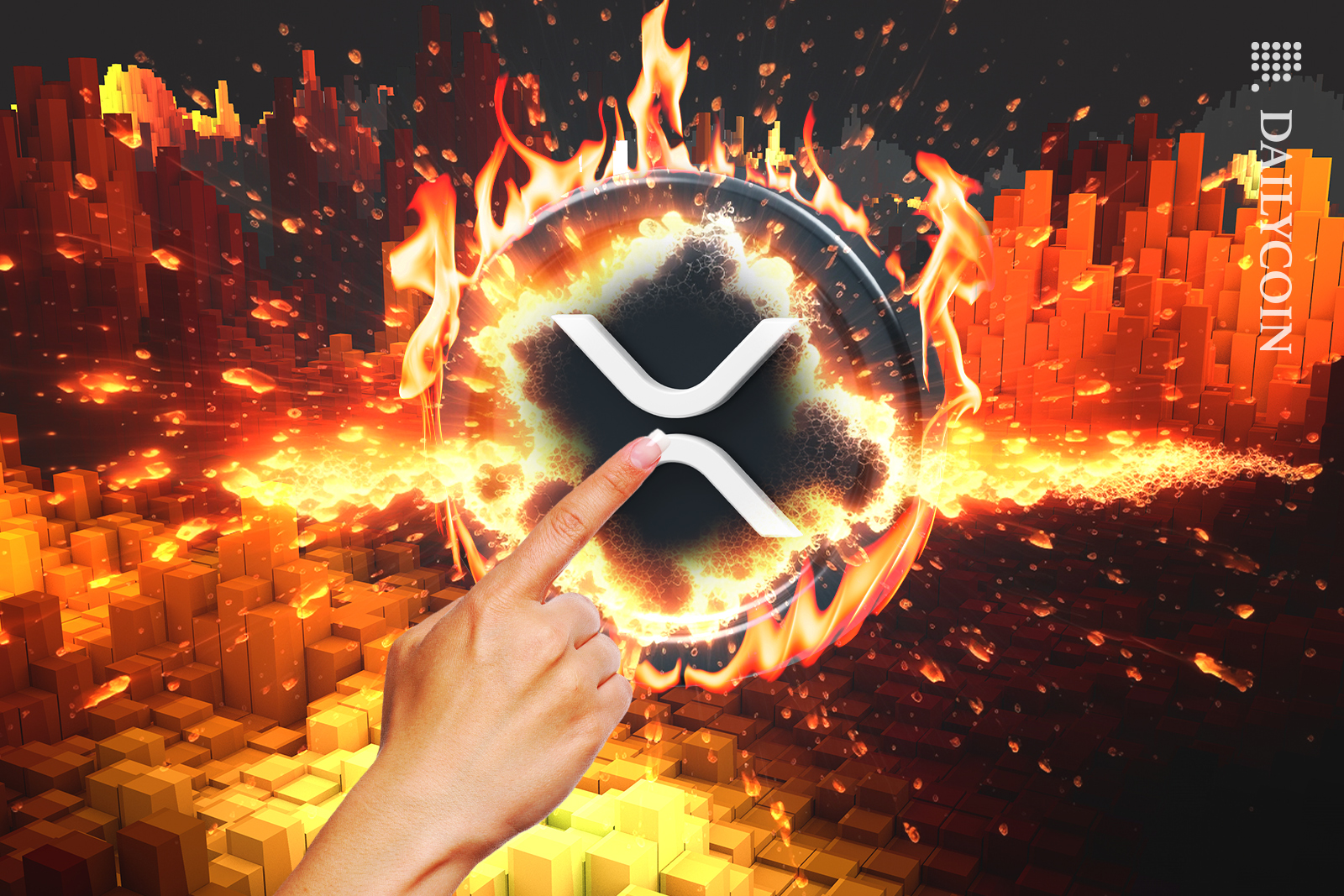
- Hinman’s released documents have ignited a debate on whether XRP meets the criteria for decentralization.
- The ongoing dispute surrounding XRP and the XRP Ledger has intensified.
- Ripple’s General Counsel has challenged the notion.
In the wake of Hinman’s released documents, a passionate debate has erupted, pitting advocates from both sides against each other in a contentious discussion over whether XRP truly satisfies the criteria for adequate decentralization.
Detractors contend that the coin falls short of decentralization due to Ripple’s alleged dominion over the asset, with the blockchain company currently holding a significant amount of XRP in escrow.
Decoding the “Sufficient Decentralization” of XRP
Hinman’s revelation stated that an asset should not be classified as a security if it has achieved a state of “sufficient decentralization” from its inception. It is upon this very premise that he declared Ethereum as a non-security.
Sponsored
Moreover, Hinman outlined specific decentralization factors that individuals should consider when evaluating this crucial concept of “sufficient decentralization.”
This ongoing dispute has only heightened the controversy surrounding XRP and its native blockchain, the XRP Ledger (XRPL). Lingering questions persist regarding whether they can genuinely be deemed decentralized or if they fall short of meeting the threshold for sufficient decentralization.
Ripple Execs: Decentralization is Technical, Not Legal Criterion
Amidst the discourse on decentralization, Ripple’s General Counsel, Stuart Alderoty, has shed light on an intriguing perspective by emphasizing that “decentralization” is a technical benchmark rather than a legal criterion.
Alderoty specifically challenges the validity of Hinman’s formulated principles of decentralization. According to Alderoty, Hinman and the SEC contrived these factors to dismiss the genuine legal obligations of determining the security classification of an asset under the Howey analysis.
Sponsored
David Schwartz, Ripple’s Chief Technology Officer, has also gone to Twitter to underscore a crucial point: skeptics who argue that XRP lacks sufficient decentralization due to Ripple’s control have failed to substantiate their claim with evidence demonstrating how the blockchain company could exploit this control to the detriment of investors.
On the Flipside
- XRP has made significant strides towards decentralization since its inception, pointing to the increasing number of validators on the XRP Ledger and the growing diversity of network participants.
- The concept of “sufficient decentralization” remains subjective and lacks a universally agreed-upon definition, leading to differing interpretations and opinions on XRP’s status.
- Ripple has taken steps to address concerns about its control over XRP by placing a substantial amount of the cryptocurrency in escrow.
Why This Matters
The ongoing debate surrounding XRP’s decentralization and its classification as a security holds profound significance for the crypto community. The outcome of this discourse will not only impact Ripple and XRP but could set a precedent for how other cryptocurrencies are evaluated and regulated.
To learn more about the ongoing SEC vs. Ripple case and the potential implications of Hinman’s documents, read here:
Hinman Documents Shakes Up SEC vs. Ripple Case: What Happens Next?
To stay updated on the recent rise of Bitcoin amidst CPI decline and a pause in Fed rate hikes, check out this article:
Bitcoin Rises as CPI Decline Hints at Fed Rate Hike Pause
FAQs
The Hinman documents refer to the disclosure made by William Hinman, the former Director of the Division of Corporation Finance at the U.S. Securities and Exchange Commission (SEC). These documents contain important insights and statements regarding the regulatory classification of cryptocurrencies and their status as securities.
The content of the Hinman emails includes exchanges between various U.S. Securities and Exchange Commission officials regarding the classification of Ether as a security. These emails shed light on the internal discussions and deliberations held within the SEC, providing insights into the perspectives and viewpoints of the officials involved.
Whether Ripple is centralized or decentralized is a subject of debate and contention within the cryptocurrency community. As a blockchain company, Ripple has faced criticism for its perceived control over the XRP cryptocurrency. Critics argue that Ripple’s significant holdings of XRP and its influence over the XRP Ledger suggest a centralized nature. However, Ripple maintains that it operates independently from the XRP Ledger, and its control over XRP does not compromise the network’s decentralization.
Similar to the debate surrounding Ripple’s centralization, the decentralization of the XRP Ledger (XRPL) is a matter of discussion. While the XRP Ledger is a public blockchain that allows for the validation and settlement of transactions by a distributed network of participants, concerns have been raised regarding the influence of Ripple and its holdings of XRP. Critics argue that this control undermines the decentralization of the XRP Ledger. However, XRP and XRPL proponents maintain that the network exhibits a sufficient level of decentralization, with validators and participants contributing to the consensus process independently.
